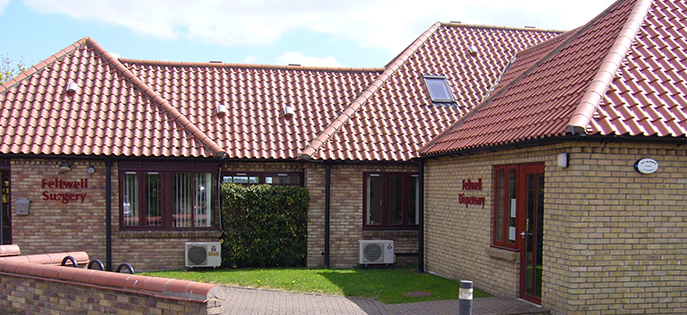Tuesday
Wednesday
Thursday
Friday
08:00 - 18:30
08:00 - 18:30
08:00 - 18:30
08:00 - 18:30
Tuesday
Wednesday
Thursday
Friday
08:30 - 13:00
08:30 - 18:00
08:30 - 18:00
08:30 - 18:00

Every year, millions of us visit our GP with minor health problems that can be easily resolved without a doctor's appointment.
It is estimated that every year, 50 million visits to the GP are made for minor ailments such as coughs and colds, mild eczema, and athlete's foot. By visiting your pharmacy instead, you could save yourself time and trouble. Or alternatively why not try visiting the NHS Choices website by clicking here.
Self-Care
Keeping a well stocked medicine cabinet at home can help you treat many minor ailments. Colds, coughs, indigestion and many other minor complaints can all be treated with medicines that are available over the counter.
There are a number of self-help measures that may help to ease the symptoms of a cold:
| Drinking enough fluids to prevent dehydration | |
| Steam inhalations with menthol, salt water nasal sprays or drops may be helpful | |
| Vapour rubs may help relieve symptoms for children | |
| Hot drinks (particularly with lemon), hot soups and spicy foods can help to ease irritation and pain in your throat | |
| Sucking sweets or lozenges which contain menthol or eucalyptus may sooth your throat | |
| Gargling with salt water may help a sore throat |
You should try to make sure you get enough rest if you have a cold. It’s not usually necessary to stay off work or school.
Your Pharmacist can advise on what you might find useful to keep in your medicine cabinet. Always follow the instructions on the medicine label and consult your doctor if the illness continues or becomes more severe.
Pharmacists offer professional free health advice at any time - you don't need an appointment. From coughs and colds to aches and pains, they can give you expert help on everyday illnesses.
Download this leaflet Is your cold, sore throat, earache or cough getting you down? to find out more.
Antibiotics
We have further information on antibiotics that you can read by downloading the following posters:
Antibiotics - When should I worry?
Antibiotics - Treating your infection
NHS Walk-In Centres
NHS Walk In Centres treat around 3 million patients a year and have proved to be a successful complementary service to traditional GP and A&E services. Some centres offer access to doctors as well as nurses. However, they are not designed for treating long-term conditions or immediately life-threatening problems. You can receive treatment for many ailments including:
| Infection and rashes | |
| Fractures and lacerations | |
| Emergency contraception and advice | |
| Stomach upsets | |
| Cuts and bruises | |
| Burns and strains |
Accident & Emergency (A&E)
Major A&E departments assess and treat patients who have serious injuries or illnesses. Generally, you should only visit A&E or call 999 for emergencies, such as:
| Loss of consciousness | |
| Blood loss | |
| Severe chest pain | |
| Breathing difficulties and choking |
If you're injured or seriously ill, you should go, or be taken, to A&E. If an ambulance is needed you can call 999, the emergency phone number in the UK. You can also dial 112, which is the equivalent for the European Union.